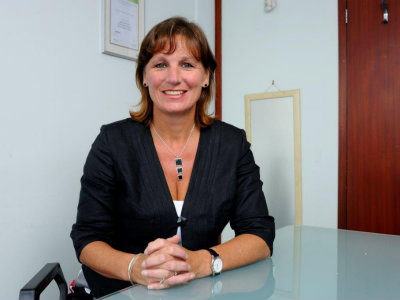
A ‘risk matrix’ is being developed to identify problems in councils that could damage the safety and quality of adult social care services.
The project, overseen by the Towards Excellence in Adult Social Care (TEASC) sector-led improvement programme, aims to help social care directors identify warning signs that their services could struggle. Examples of risks include changes to political leadership and senior staff, high staff turnover, budget pressures and unstable care markets.
Sarah Mitchell, the recently appointed programme director for TEASC, told Community Care that the tool aimed to quantify risk factors and assess if the right actions were being taken in response.
“Some of those will be core risks that are the same for all of us – leadership, money, capacity, demographics. But there will also be specific environmental risks, so for example there might be something that has happened in children’s services that overwhelms the whole council,” she said.
Sector-led improvement was established in November 2010, after the government scrapped CQC inspections of adult social services departments. The TEASC programme board is led by the Association of Adult Social Services (Adass) and Local Government Association (LGA). It also includes representation from the CQC.
Under sector-led improvement, councils voluntarily subject themselves to peer reviews by staff and councillors from elsewhere and authorities work together regionally to support each other.
Building an evidence-base
Mitchell said one of her priorities as programme director to gather evidence on the impact sector-led improvement has had over the past three years.
Consultancy firm Shared Intelligence has been commissioned to evaluate the models of support used by TEASC. These include peer challenges, regional support networks and the annual ‘local accounts’ of adult social care performance that TEASC recommends councils publish annually. The Shared Intelligence evaluation will report in March 2015.
TEASC is also working with the Social Care Institute for Excellence to validate case examples of sector led improvement, particularly in key areas of difficulties for councils such as employment support for people with mental health issues or learning disabilities.
“We know that people like case studies but there is a view that they can be a a bit fluffy so we’re working with SCIE to develop a very rigorous approach to collecting that information,” she said.
“We’ll collect the information using that approach, we’ll test it out in each region and then we’ll get SCIE to validate it so we can say ‘yes, this is absolutely a result of sector-led improvement’.”
Transparency challenges
One criticism levelled at sector-led improvement in the past has concerned its ability, or lack of it, to identify underperforming councils. A review commissioned by TEASC last year found that many councils were failing to report on their weaknesses in ‘local accounts’. The review recommended that councils should be more open about adult social care performance and reductions in service levels.
Mitchell said that, in her view, councils are getting better at sharing what is going wrong with services but the lack of a “mature discussion” in the media reaction when problems facing the sector are flagged up did not help.
“We tell the good stories and I think people do, and will, tell the other stories and the financial challenge too if the response they get is a mature and a responsible one. [But] if it becomes that when you tell how things aren’t working then all you get is a hammering, or a sudden inspection, or vilified in the press, why would people want to tell that story?” she said.
A former director of adult services herself, Mitchell said that she took the TEASC job as she wanted to support directors at a time when demands on them have “never been so tough” due to the financial pressures on local government.
“If everyone gets out of being a DAS [Director of adult services] then we’re not going to have public services run by people who know what the business is. We want to support them to do the best job they can and tell the story of adult social care and the fantastic work that’s happening,” she said.
“We need to get better at that being evidence-based so that we don’t just have people saying ‘well you would say that wouldn’t you?’. People talk about ‘a good piece of medicine’ or a ‘good piece of public health’, well we want to be able to say ‘this is a good piece of social care or social work and here’s the evidence to prove it.”


 Bournemouth, Christchurch and Poole
Bournemouth, Christchurch and Poole  Hampshire County Council
Hampshire County Council  Lincolnshire County Council
Lincolnshire County Council  Norfolk County Council
Norfolk County Council  Northamptonshire Children’s Trust
Northamptonshire Children’s Trust  South Gloucestershire Council
South Gloucestershire Council  Wiltshire Council
Wiltshire Council  Wokingham Borough Council
Wokingham Borough Council  Children and young people with SEND are ‘valued and prioritised’ in Wiltshire, find inspectors
Children and young people with SEND are ‘valued and prioritised’ in Wiltshire, find inspectors  How specialist refugee teams benefit young people and social workers
How specialist refugee teams benefit young people and social workers  Podcast: returning to social work after becoming a first-time parent
Podcast: returning to social work after becoming a first-time parent  Podcast: would you work for an inadequate-rated service?
Podcast: would you work for an inadequate-rated service?  Family help: one local authority’s experience of the model
Family help: one local authority’s experience of the model  Workforce Insights – showcasing a selection of the sector’s top recruiters
Workforce Insights – showcasing a selection of the sector’s top recruiters 

 Facebook
Facebook X
X LinkedIn
LinkedIn Instagram
Instagram
Comments are closed.